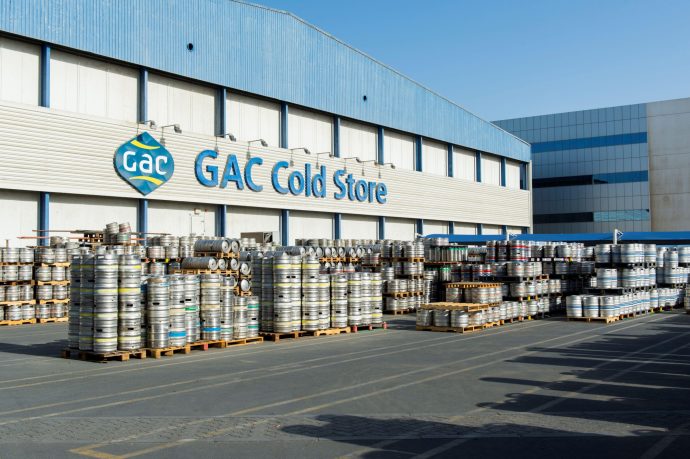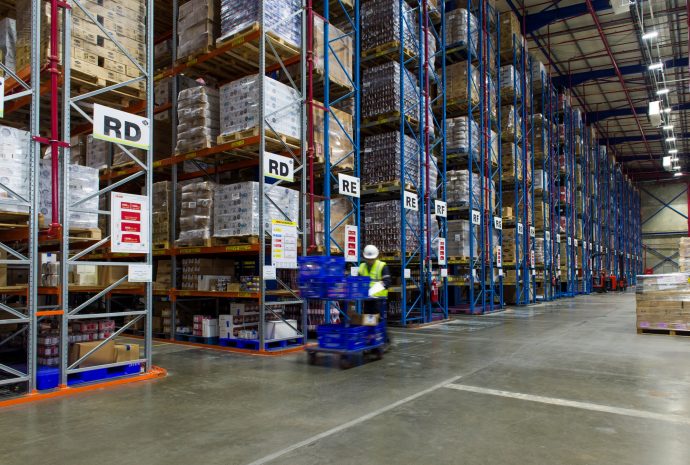Fast-moving consumer goods (FMCGs) are a quintessential example of today’s fast-paced and agile logistics network. It’s about getting the right product to the correct customer quickly, safely and securely.
FMCGs are mass-produced consumer-packaged goods with a short shelf life and a fast turnover rate, such as packaged food, toiletries, medicines and cleaning products. They can also be highly perishable, such as fresh fruit and vegetables, and face seasonal supply and demand challenges.
Keeping pace
According to leading market researcher Fortune Business Insights, the global FMCG logistics market size reached US$105.85 billion in 2021 and is expected to grow to US$131.54 billion by 2028.
Changing consumer demands are now testing the capabilities of warehousing services and infrastructure as they look to keep pace with an increasingly demanding sector.
“The Covid-19 pandemic had a direct impact on the rapid development of global e-commerce,” says Peter Orange, Group Sales Director - Logistics at GAC. “Some of the changes it brought have now become permanent consumer habits, particularly demand for last-mile and next-day delivery services for online shopping, and competition has ramped up significantly.”

GAC has long been an industry leader in sophisticated and adaptable contract logistics for the FMCG market, particularly in the Middle East.
In April 2022, GAC Dubai was named FMCG Supply Chain of the Year winner at the Logistics Middle East Awards in recognition of its supply chain management services to the region’s logistics industry. It was the third time it earned the accolade in the last five years.

In Qatar, GAC’s new warehouse in the Ras Bufontas Free Zone features up to 40,000 pallet positions, as well as temperature and humidity-controlled chambers, to meet the needs of the local FMCG sector. It has been built based on the experience and expertise accumulated from more than 60 years in the logistics industry, and with advanced technology in mind.
Getting technical
Logistics and warehousing hubs that successfully implemented digital and integrated solutions for their supply chain management services rose to the challenge presented by the pandemic and have set a new standard not just for what is possible, but what is necessary to compete.
GAC has been at the forefront of harnessing technology to optimise its Middle East warehousing and contract logistics operations. GACWare, its proprietary and flexible warehouse management system, provides customers with a real-time snapshot of stock levels and issues advanced alerts when new stock is required. Other innovations introduced by GAC include:
“Our digital systems deliver valuable insights to help our customers make informed and timely decisions to improve their supply chains and decision making,” says Peter.
Such technology also boosts the visibility of the FMCG supply chain. Any economic breakdown can lead to empty shelves and lost income, so GAC works closely with its customers to give them as much supply chain management transparency as possible. GACWare, which can be adapted for small start-ups and large retail/FMCG scenarios, is a shining example.
Peter notes that this technological drive to maximise warehousing and contract logistics services is not just applicable for the FMCG sector.

“Optimisation remains key to all contract logistics services,” says Peter. “While some players are building bigger and bigger warehouses to keep up with demand, GAC is using technology to enable its fulfilment centres to reach their full potential. After all, what is the point of additional space if it is not optimised?”
Global supply chains require flexible, modern and competitive fulfillment centres to keep pace with consumer behaviour. As warehouses and pallet positions continue to grow, technology becomes even more vital in optimising the utilisation of fulfillment centres to support customers’ rapidly changing requirements.